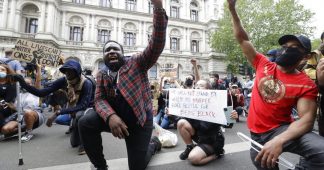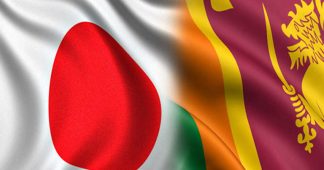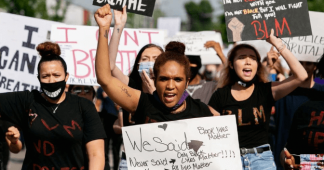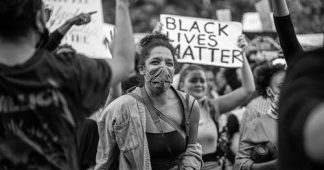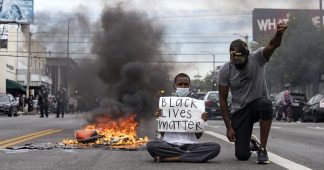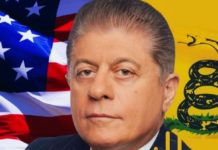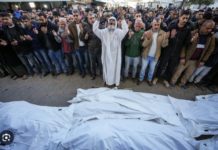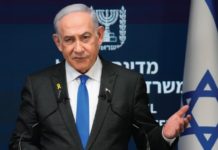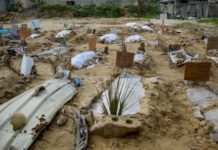By Lasanda Kurukulasuriya
Former minister Mangala Samaraweera’s decision not to contest the upcoming parliamentary election, despite his name being on the candidates list, is unlikely to have been an arbitrary one. Samaraweera is not the type of politician to fade into oblivion simply based on the chance thathe may lose. An advocate offar-reaching neoliberal reforms, his leanings towards a pro-US foreign policy are well known. A high point being his signing up to make Sri Lanka aco-sponsor of a US-led anti-Lanka resolution at the UN Human Rights Council in 2015, when he was foreign minister. In all likelihood Samaraweera has a clear political plan in mind, for which he has powerful backers.
Days before his announcement to the people of Matara district that he was stepping down from parliamentary politics, and asking them not to tick his name on the ballotpaper, Samaraweera issued a wordy statement on his proposals for economic reform. Titled ‘A New Deal for Sri Lanka,’ itdescribed, in apocalyptic tones, a picture of doom and gloom that he said the country was facing, soon to manifest in conditions of mass unemployment, debt and hunger. For the first time, a default on sovereign debt was expected, he said.In the electoral context, it remains unclear to which faction the former finance minister will hitch his political fortunes.
Fast-tracking the MCC
Two days after the New Deal statement, on 9th June, the Sri Lanka police carried out a brutal assault,followed by arrests, of a group they said planned to stage a demonstration near the US embassy in Colpetty,over the murder of George Floyd, an African-American, by a white police officer in Minneapolis, USA. Video footage that went viral showing the man being suffocated under a policeman’s knee, shocked the conscience of the world. It triggered unprecedented protests in cities across the USA and Europe, that drew tens of thousands of multi-racial protestors for days on end.
The incident also triggered renewed debate over the structural aspects of racism and police violence in neoliberal society. Floyd was not the first such victim. “In the dominant narrative, the debate is framed in terms of “racist policemen” or African Americans that ‘do not respect the police,’” wrote Silvia Arana in a 2016 article in ‘Latin America in Movement’ website. “But the reality is that the racism and the abuse of police power fulfill a vital function for the neoliberal system: the police are used to repress poor African-American communities, with the aim of avoiding any form of rebellion in the face of the sacking of resources and the concentration of wealth in the hands of the elites.”
It is interesting that Samaraweera begins his list of proposals with a pitch for ‘fast tracking’ the Millennium Challenge Corporation (MCC) agreement. The US has been pushing to final is eits$480 million MCC grant,with grim determination, in the face of strong public opposition. The little that is known about the MCChas caused concern over serious potential breaches of sovereignty and constitutional rights, with several petitions coming before the supreme court.
Samaraweera’s New Deal includes aggressive neoliberal reforms including privatization of State Owned Enterprises (SOEs), advocated by like minded think tanks. He urges land reform to privatize vast extents of state land. Valuable resources will then be up for grabs for private investors, multi national corporations, US and other foreign companies or individuals to exploit for private profit. The mass dispossession of debt-strapped farmers and other rural communities that may be predicted with these changes, could lead to impoverishment, and an exodus into cities. The stage will then be set for public anger to spill over in to the street.Protests and demonstrations will have to be suppressed with force to protect the foreign interests (the ‘sacking of resources’ that Arana refers to). One needs to ask, in the wake of the recent ferocious police attack on peaceful protestors, whether it is in anticipation of just such a scenario that that the police are being groomed?
Larger US project
Samaraweera’s proposals,that echothe previous government’s ‘yahapalana’ (good governance) policies,are at variance with President Gotabaya Rajapaksa’s vision for the country as spelled out in his 2019 election manifesto. It categorically states that “There will be no transfer of key resources and strategic economic centres of the country to foreign ownership”(page 36).
The US however will pursue its interests regardless of parties and individuals in power. The MCC needs to be analysed along with the already-signed Acquisition & Cross Service Agreement (ACSA), and yet-to-be-finalized Status of Forces Agreement (SOFA). All three form part of a larger US project to make Sri Lanka a military hub in the Indian Ocean,with a view to ‘containing’ China. This project will continue regardless of who is in power.
FSP under attack
Last week’s police assault in Colombo,on the Frontline Socialist Party, a splinter of the JVP, merits closer scrutiny against a backdrop of conflicting claims. Initial reports citing Police Spokesman Jaliya Senaratnegave the impression that police arrested dozens of persons (with different reports giving different figures) for demonstrating in front of the US embassy to condemn the police killing of George Floyd in the USA.Police said a court order had been given the previous day to the ‘organization concerned,’ prohibiting a planned demonstration.
The arrests took place in two different locations – Colpettyand Town Hall. HoweverSirasa TV footage showed that the persons arrested in Colpetty were not anywhere near the US embassy or even on Galle Road. Buildings seen in the background (L B Finance, Movenpick) indicated this was happening around the corner from the Colpetty roundabout. This shows that the police arrested persons who were not actually ‘protesting in violation of a court order,’ but on the assumption that they were about to stage a protest. Would this not set a dangerous precedent, one needs to ask. An FSP spokesman later said on TV they had been standing at a bus halt at the time.
FSP propaganda secretaryDumindaNagamuwa and others with him vehemently denied having received a court order. They were shown being roughed up, pushed, shoved, punched, shirts ripped, dragged and forcibly bundled into trucks and taken away. After that another group of FSP members are reported to have moved on from Colpetty to Town Hall where footage shows them holding placards and staging a peaceful demo at Lipton roundabout. They wereobserving social distancing. Police then moved in on FSP leader Kumar Guneratnamwhile he was making a speech and hauled him away, along with others, again treated with unprecedented brutality. A woman wasseen being flung headfirst into a truck, ‘like a bag of rotten fish’ as JVP’s Sunil Handunetti described later.
Quarantine law
Police Spokesman Senaratne told reporters that action will be taken against 42 arrested persons under the quarantine law and also for contempt of court. It was only when a journalist pointedly asked whether the arrests were for violating quarantine law or for violating a court order, that Senaratne said it was forthe latter.The police kept the coronavirus and dangers posed by it, in the forefront of their statements to the media, repeatedly mentioning the ‘violation of quarantine law.’ If there is any specific provision in the Quarantine and Prevention of Diseases Ordinance No. 3 of 1897 against the holding of a peaceful demonstration, the police did not spell it out. Nor did any health official publicly corroborate police comments. Observers noted that it was not the protesters but the police who were seen violating social distancing rules, by physically wrestling with the protestors.
It’s interesting to note that US ambassador Alaina Teplitztoo linked the policeaction to the coronavirus outbreak. “Today’s proposed demonstration in front of our Embassy was denied by #LKA police due to C-19 restrictions on gatherings” she asserted, in a tweet. A US embassy tweet meanwhile said that the embassy did not request that the demonstration be blocked, and expressed appreciation to the government and law enforcement “for their efforts to keep diplomatic personnel and facilities in the country safe.”
The government sought to distance itself from this episode. Cabinet Spokesman BandulaGunewardena, hastening to point out that those arrested had been released the same day, said neither the president nor anyone in the cabinet approved of the attack. The police department comes under the Ministry of Defence. But Defence Secretary Major General (retd.) Kamal Guneratne(by his own admission) had side-stepped the issue when a reporter put it to him that the attack was unacceptable. He had replied that since President Rajapaksa was elected ‘not a single water canon or tear gas cylinder had been used against demonstrators.’In a somewhat less publicized event, Police Spokesman Senaratne was reported to have been promoted with retrospective effect from 1st Jan. 2018.
